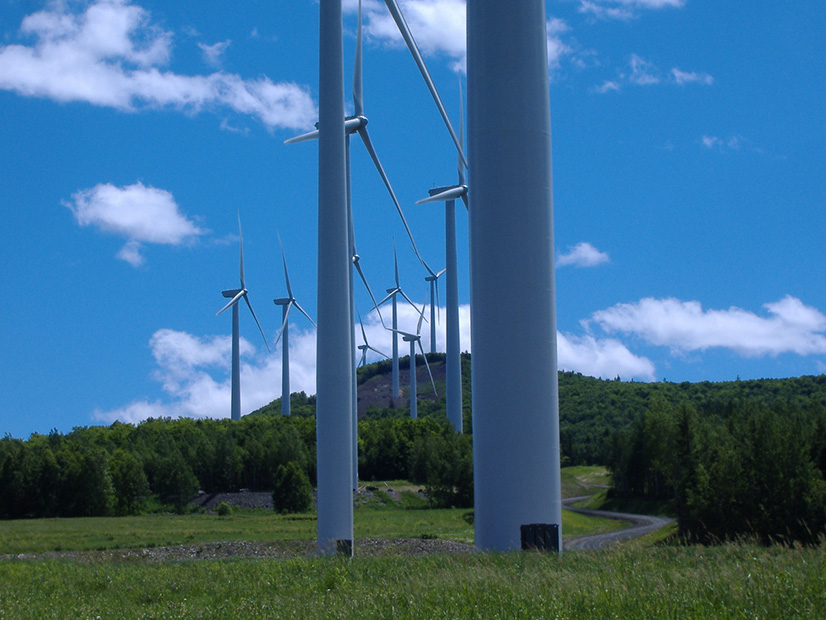
Maine legislators are set to take a second look at a bill that would create a public entity to finance and own renewable generation in the state.
The Act to Create the Maine Generation Authority (MGA), which was introduced in the 1st session of the 130th Legislature, “presented a big issue” for members of the Joint Energy, Utilities and Technology Committee (EUT), Sen. Mark Lawrence (D), committee chair, said Monday.
After hearing testimony on the bill (LD1634) in May and discussing it further in work sessions, the EUT Committee voted in November to table it for further consideration.
“I don’t support the Main Generation Authority bill, and I would like to see [it] die this session,” Rep. Nathan Wadsworth (R) said during the committee session preview hosted by the Environmental and Energy Technology Council of Maine (E2Tech) on Monday.
Introduced by Rep. Nicole Grohoski (D), the bill outlines the functions of a state-run authority that is modeled after the Maine Turnpike Authority. It is intended, according to Grohoski, to ensure Maine meets its renewable energy target without raising costs for ratepayers.
The key to doing that, Grohoski said in testimony, is enabling the MGA to provide low-cost revenue bonds that are more favorable than private capital. All Maine electricity customers would pay an MGA surcharge.
As proposed, the authority would be responsible for securing contracts with the private sector for the construction and operation of energy storage and renewable energy projects, including offshore wind. The MGA would own the projects, targeting a total of 2,000 GWh of generation and 100 MW of storage capacity by 2033.
After projects are developed, the MGA would sell the output and associated credits in the wholesale market.
The authority would “bond off the backs of the electric ratepayer,” Wadsworth said. “I’ve always voted against public ownership of our T&D systems, and I would use the same logic and vote against public ownership of generation assets.”
The Maine Renewable Energy Association urged EUT members last year to vote against the bill. Current state procurement processes, overseen by the Maine Public Utilities Commission, ensure that “ratepayers benefit from the output from an operational project,” MREA Executive Director Jeremy Payne said in May 5 testimony. The authority, he added, would put stranded-asset risks onto ratepayers.
Sierra Club asked the committee to support the bill, saying that people rely on the electricity system in the same way that they rely on roads and bridges.
“It is in the best interest of all Mainers to update our electricity system at the lowest possible cost so that electric rates remain low, especially as more and more people rely on electricity as their primary or sole fuel, including for heating,” said Jonathan Fulford, legislative team chair at Sierra Club Maine.
Energy Affordability
While Grohoski touted the MGA bill as the “one proposal” before the committee that would not raise energy prices in the clean energy transition, the Maine Public Advocate last year was not fully supportive of that premise.
The state’s lower cost of capital would “theoretically” reduce the financial burden on Maine ratepayers, former Public Advocate Barry Hobbins said. A consequence of the bill, however, is that it “undercuts” Maine’s competitive distributed energy market, he said.
Gov. Janet Mills swore in William Harwood as the new advocate Jan. 26. He spoke during the E2Tech session preview about his priorities, which include affordability on the supply side of energy.
Harwood did not address the MGA bill, but he pointed to energy supply as an area where Maine does not have the “luxury” of letting market forces dictate affordability.
“The Office of Public Advocate must look closer on the supply side and the generation side to make sure that those costs are reasonable,” he said.
The advocate’s office, he said, will focus on gas-fired generation, net metering, renewable energy buildout in Northern Maine and standard offer service rates.


